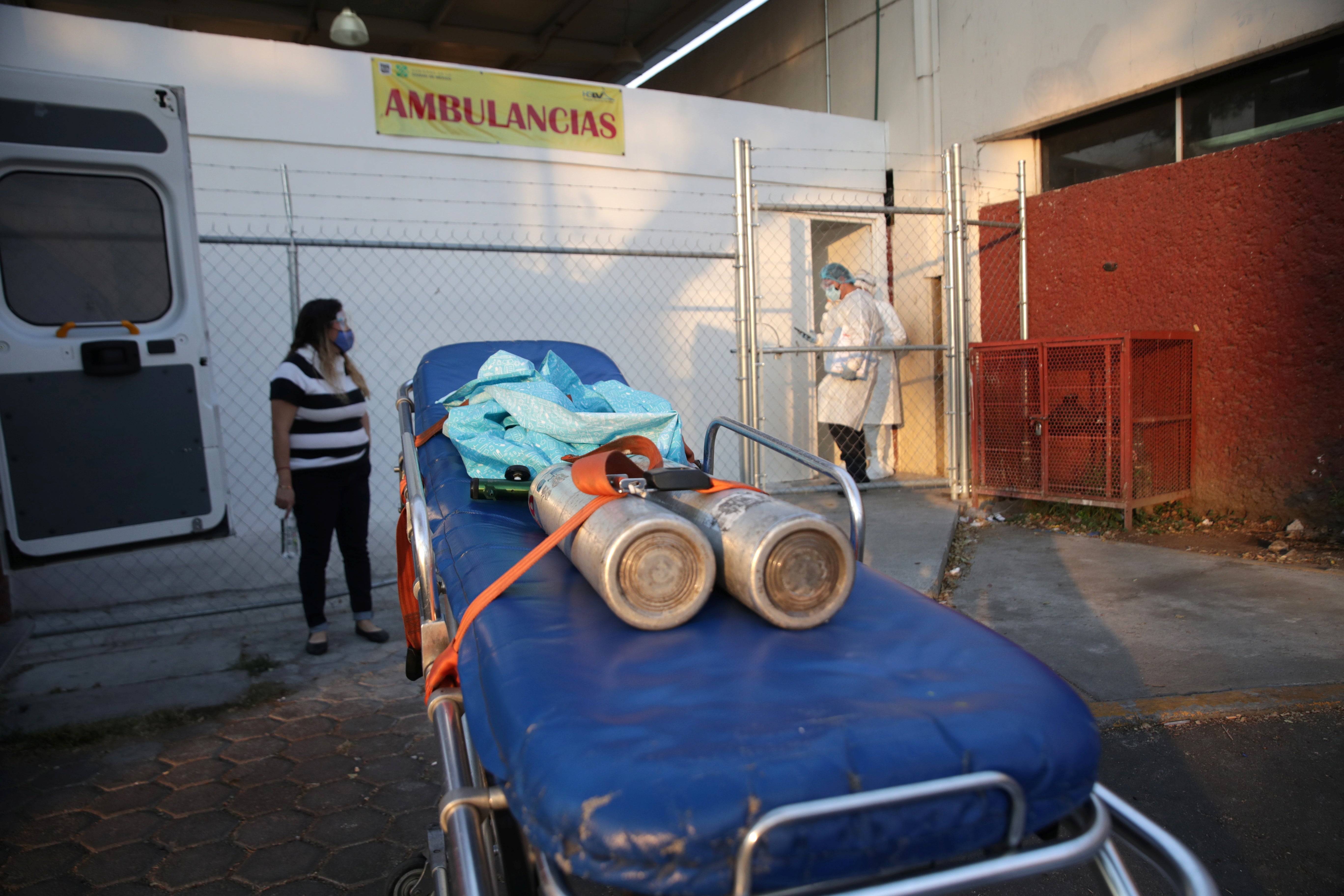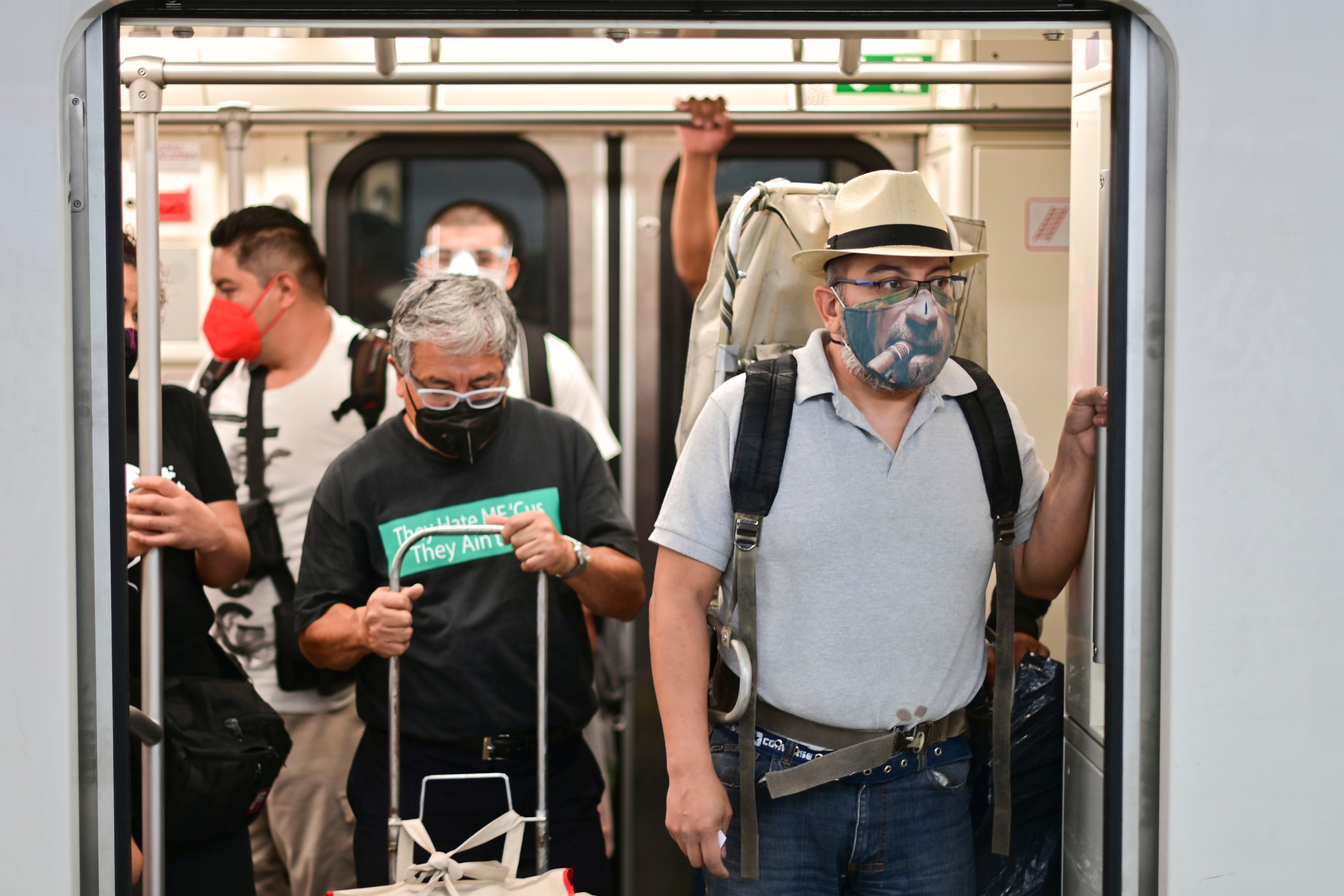Oxygen thieves: Mexico mafia moves into stolen medical supplies market
Mexican cartels have found a new market during the coronavirus pandemic, reports Chris Havler-Barrett from Mexico City

Oxygen supplies have become increasingly difficult to find across Mexico, as demand soars in a nation that has become one of the hardest hit during the coronavirus pandemic – forcing the Mexican government to turn to importing directly from the United States.
These imported supplies make attractive targets for the organised criminal elements who dominate much of the country. Some stolen oxygen tanks are being sold at up to 300 per cent of their original price as cartels look to take advantage of a country struggling to deal with the impact of the pandemic.
WhatsApp groups are filled with messages asking for people to help locate medical supplies, as over-capacity hospitals are turning even seriously ill patients away. A private bed in Mexico City, the epicentre of the pandemic in Mexico, costs upwards of $500,000 pesos (£18,000) just for admission.
The Iztapalapa district of the capital alone has recorded over 4,250 deaths and 73,000 cases so far – more than the toll in 122 countries – with no sign that the infection rates are slowing.
Videos have emerged of huge queues outside oxygen refill points, as people turn to caring for their loved ones at home. Oxygen refills are provided free of charge by the government, but often run out very quickly.
Demands for oxygen in the region rocketed by 700 per cent in the first three weeks of January, as the consequences of delaying a second lockdown in the capital have been driven home. The mortality rate for the virus here is as high as six per cent, as rampant inequality and a lack of access to resources take their toll.
Requests for the installation of home respiration equipment in the areas around the capital increased during January, but with a shortage of supplies, less than 50 per cent of requests have been fulfilled.
With only around 40 tanks per day available from refill points, those with critically sick family members are being pushed to ever more extreme lengths to try and find potentially life-saving supplies.
The federal government says it has everything under control – and while it is aware of the oxygen thefts, it does not currently see the scale as concerning. In a press conference in January, the security secretary Rosa Icela Rodriguez and procurator fiscal Ricardo Sheffield announced that aside from “three or four areas”, there is no serious concern for the integrity of the supply chain.
The National Guard has cited the states of Edomex, Mexico City, Tlaxcala, Puebla, Durango, Sonora and Michoacan as the areas of greatest concern.
Sheffield was tight-lipped over the amount of oxygen that Mexico is importing, however, and refused to answer exactly how much of the gas is being sent from the United States.

He also issued a warning to families who might be considering buying from the black market; “These tanks are for industrial use – they cannot be used for respirators. The tanks may simply be empty – there is now a black market for these cylinders.
“Please, however desperate you are, do not take advantage of these offerings,” he implored.
Despite reassurance from the government, there is real concern that medical operations in the Valle de Mexico, part of the badly hit Edomex region may be adversely affected by these robberies. Most thefts occur either in the cartel-controlled border regions with the United States, or in Edomex, the densely populated and relatively poor suburban conglomeration that surrounds Mexico City.
On 19 January, armed men took control of a truck transporting 45 oxygen canisters in the north of the region. On the same day, a vehicle with 90 tanks on board was seized in Puebla – although both trucks were eventually recovered.
Social media is playing a large part in the sale of these illegally acquired supplies. Over 1,700 profiles have been linked to the operation, although some have also been tied to fraudulent sales of empty tanks. Sixty per cent of those investigated for oxygen-related crimes have since been detained by the government, but with demand higher than ever, there is no incentive for criminal groups to stop.
Without easy access to vaccines, or a concrete plan to distribute them across a country that can count itself among the most adversely affected in the world, this latest development creates even more difficulties for an under-pressure government.
Join our commenting forum
Join thought-provoking conversations, follow other Independent readers and see their replies
0Comments